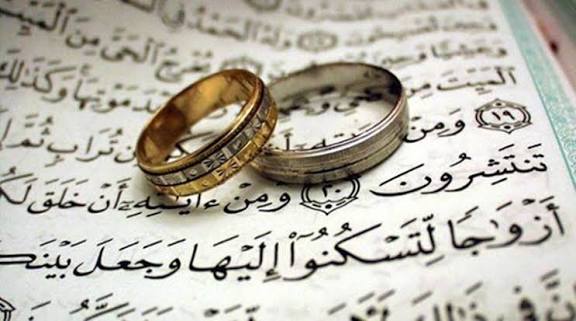THE CHANGING FACE OF COURTSHIP IN HAUSA SOCIETY: FROM FAMILY ARRANGEMENTS TO SOCIAL MEDIA DATING

By Abdulkadir Yakubu Bala
abdulkhadeerdansidi@yahoo.com
In Hausa society, marriage has always been more than a personal choice it is a family affair, a cultural institution, and a sacred religious duty. For generations, courtship followed a structured pattern: parents, elders, and respected intermediaries (Wakilai) took the lead in arranging suitable matches. Families prized modesty, discipline, and reputation, while young men and women often had little direct involvement in choosing their life partners.
But times are changing. In an age of smartphones, instant messaging and digital entertainment. The old ways of finding spouse are colliding with new realities. Today, Hausa youth are redefining courtship, meeting partners on Instagram, exchanging messages on WhatsApp. This changes triggers debates across homes and communities
Traditionally, when a Hausa man developed interest in a woman, he rarely approached her directly. Instead, elders or family representatives acted as go between. The process was deliberate and careful, protecting family honour and ensuring that Islamic principles and Hausa culture guided the relationship.
This method placed family integrity above individual desire. A good marriage was not just about personal attraction but about uniting families, preserving culture, and ensuring that both partners were morally upright.
“During our time, it was unheard of for a boy to go straight to a girl,” recalls Malam Sani, 68 an Islamic Scholar. “Your parents would talk to her parents, and everything was done with respect. That was how trust and dignity were maintained.”
Many parents still believe this system produces stability, respect, and fewer risks of scandal.
With rising urbanization, education, and exposure to global culture, young Hausa men and women are gaining more independence. University campuses, workplaces, and social gatherings have become spaces where informal relationships begin.
For the youth, this represents freedom, a chance to make personal choices. For parents, it signals danger.
“We grew up knowing that marriage was arranged through family consent,” says Aisha Ismail. “But today, many girls chat with boys on WhatsApp without their parents knowing. Which is also risky. Some girls end up heartbroken.”
The influence of Kannywood movies and Hausa music has further popularized the idea of romantic love, making inspiring youths to imagine informal relationship as a companionship and emotional fulfillment.
Social media has now become the new “marketplace of love.” WhatsApp groups, Facebook timelines, Instagram DMs, and even TikTok videos are common platforms for starting relationships. Young people exchange memes, voice notes, and late night calls, building connections far from parental eyes.
This digital shift has advantages. Women, once are confined by strict social boundaries, now exercise more choice and agency in selecting partners. Relationships that might never have been possible across geographical or social divides are now being formed.
“I met my husband on Facebook,” Maryam says in BBC Hausa Interview, a nurse in Kaduna who got married in 2022. “At first, my parents disagreed. But when he came with his family, everything changed. It shows that social media can also lead to serious marriage.”
But challenges remain. Online deception, fake identities, and lack of accountability have led to broken hearts and mistrust. Religious scholars warn that such relationships, if unchecked, may erode modesty and lead to immorality.
“Technology is not the problem; it is how people use it,” Sheikh Ibrahim Khalil, an imam in Kano. “Islam encourages modesty and honesty. If young people apply these values online, there is no harm. But secrecy and immoral chatting destroy faith and families.”
Hajiya Zainab, a 55-year-old mother of four. “In our days, we married men we hardly spoke to, yet many of us stayed married for decades.
Courtship in Hausa society today stands at a crossroad between heritage and modernity. The traditions of family arrangements, respect, and honor once served as the foundation of marriage, ensuring stability and cultural continuity. Yet, the rise of social media and changing lifestyles have given young men and women new freedoms, choices, and risks. What we see today is not simply the loss of culture, but the birth of a new form of courtship that carries both promise and peril. At its heart, every parent, scholar, and young person still seeks the same thing: marriages built on trust, faith, and love that can endure life’s tests. The real task before us is finding balance protecting values while accepting opportunities.
Parents must learn to guide rather than dictate, opening conversations with their children and walking with them in the delicate journey of choosing a life partner. In the same way, youth must understand that freedom comes with responsibility. Social media can connect hearts, but it can also destroy them if used carelessly. Honesty, modesty, and self-respect should remain their guiding lights. Religious and community leaders, whose voices carry weight, should not only condemn what is new but also show how Islamic and cultural values can coexist with modern realities. Society as a whole must remember that marriage is not just about two individuals but about two families, two legacies, and the future of the community.
In the end, love in Hausa culture whether arranged by families or discovered through a WhatsApp chat should never lose its soul: dignity, respect, and the blessing of family. For when marriages are nurtured with faith and guided by wisdom, they become not only the union of two hearts but also the hope of generations to come.

